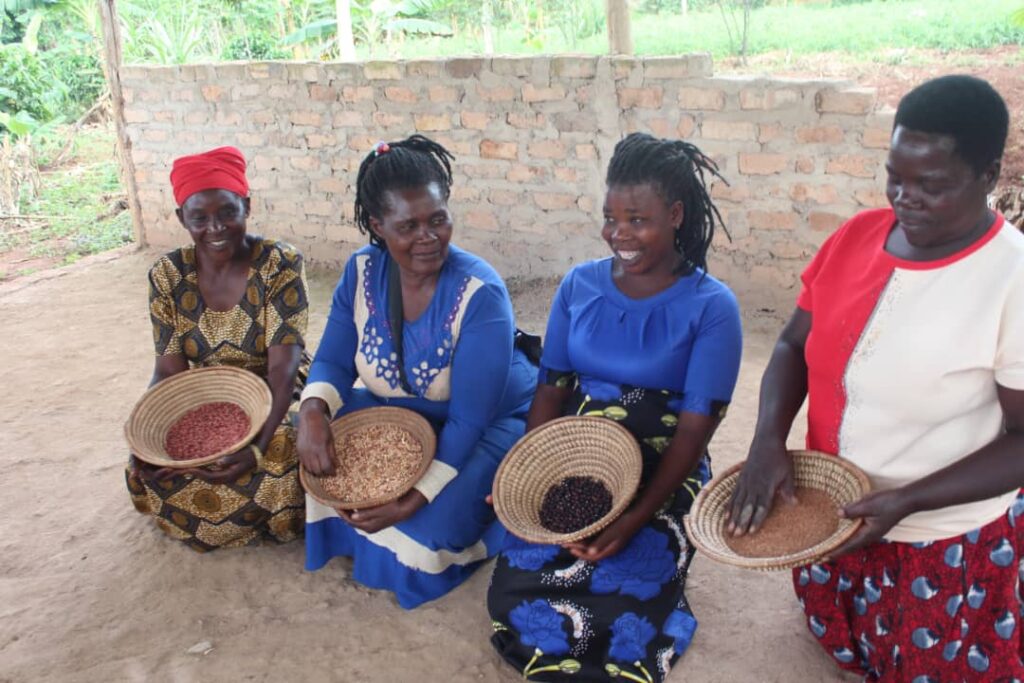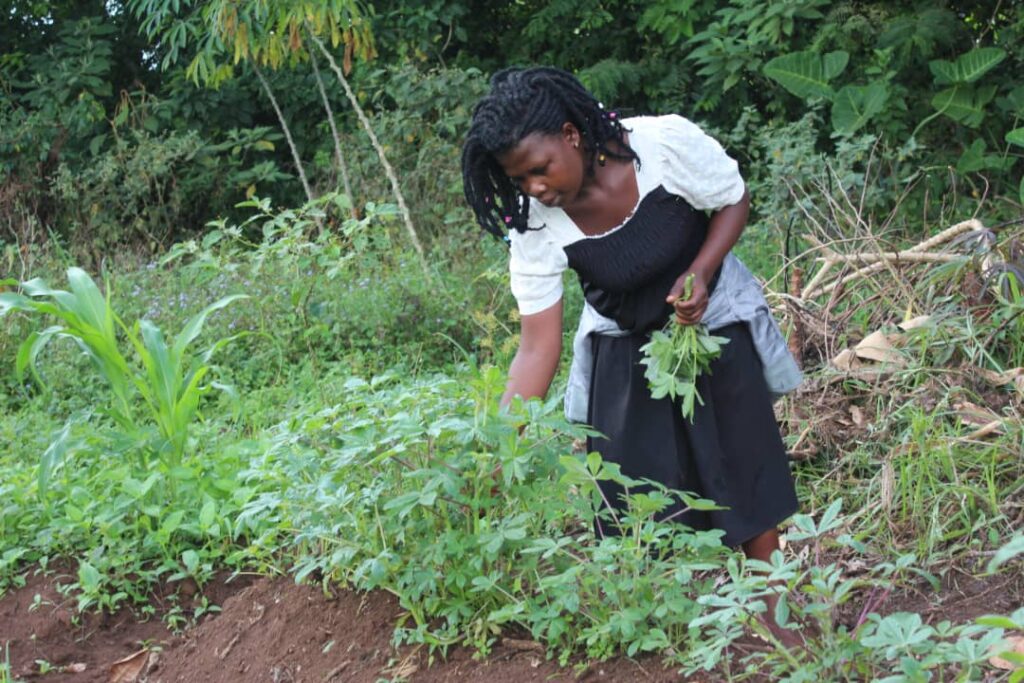By Muhoozi Nelson Mandela
In Magongolo village, Mityana District, six women farmers are spearheading a transformative initiative aimed at reviving traditional farming practices, restoring indigenous seed varieties, and promoting healthier food systems.
The women-led group, in collaboration with the Nutritional African Foods Initiative (NAFI), is demonstrating resilience and innovation in ensuring food sovereignty and sustainable agriculture.
NAFI, under the African Women’s Collaborative for Healthy Food Systems, is conducting a study on the nutritional and cultural value of selected indigenous crops.
Margaret Masudio, the NAFI lead, explained that the initiative, in partnership with the East and Southern Africa Small Scale Farmers Forum (ESAFF), focuses on documenting the planting, processing, and marketing of eight traditional crops, including local mangoes, bananas, amaranthus (dodo), sweet potatoes, pumpkins, bambara nuts, cowpeas, millet, and spider plant (gyobyo).

“The women are actively involved in planting these crops while contributing to research on climate change impacts, soil types, and other farming dynamics,” Masudio said, noting that they aim to analyze the nutritional components of crops such as pumpkins, examining both their flesh and leaves. These findings will be shared with the community after laboratory testing.
Transforming lives
For Hawa Ndagire, one of the project participants, the initiative has been life changing. At 16 years, she said that she was a young mother struggling to make ends meet through small-scale farming. However, limited access to land and costly pesticides made farming unsustainable for her.
Her fortunes changed when she joined a farmer’s group and received training on organic farming practices. She was later selected to participate in the NAFI project.
“I now confidently engage in community discussions affecting women farmers. I’ve also learned to make organic fertilizers using animal waste and human urine, which has improved my crop yields and family nutrition,” Ndagire explained.
Additionally, with support from her husband, she now has access to land for farming and envisions a brighter future.
“This project has empowered me to contribute to my family’s welfare and advocate for my rights as a woman farmer,” she added.
Building capacity for sustainable agriculture
Another participant, Susan Nakate, reflected on her journey, highlighting that “Before joining this initiative, I relied on wild amaranthus for food. Now, with access to good seeds, I grow leafy vegetables for my kitchen garden and even sell surplus to the market,” she shared.

Nakate highlighted the health benefits of these vegetables, particularly for pregnant women, children, and menstruating females.
“These crops are rich in nutrients that support blood production and overall health,” she said.
The initiative has also introduced Nakate to modern farming tools. Through training, she said she has learned to use a smartphone to document farming processes and access online resources, which has enhanced her skills and productivity.
Julius Engwedu, a field assistant at ESAFF Uganda, emphasized the technical support provided to the farmers.
“We’ve trained them in soil and water conservation, biofertilizer and biopesticide preparation, and crop protection. These skills have improved their resilience and the quality of their produce,” Engwedu said.
Overcoming challenges
Despite their progress, the farmers face significant challenges, including climate change, limited access to land, and unreliable weather patterns. Droughts, pests, diseases, and chemical use in the area have affected crop performance according to Masudio.
To mitigate these challenges, the initiative promotes innovative solutions such as container gardening for crops like amaranthus and bambara nuts, the use of organic pesticides and fertilizers, and seed sharing within the community.
“We encourage farmers to practice seed banking to ensure sustainability,” Engwedu said.
Masudio believes scaling up the project to other parts of Uganda is critical.
“We need to study whether the nutritional value of foods remains consistent when dried, half-cooked, or fresh. Stakeholders must invest in this initiative to improve the population’s nutrition,” she urged.
Engwedu echoed this sentiment, calling for increased resource allocation. “We need to establish agroecology demonstration centers, build capacity, and promote peer-to-peer learning to ensure widespread adoption of sustainable practices,” he advocated.
A model for change
The farmers said that the initiative is more than just a farming project; “it is a testament to the power of women in driving change in their communities,” they noted.
By reviving traditional practices and embracing modern techniques, they said the women are not only improving their livelihoods but also contributing to a healthier, more resilient food system for Uganda.
ESAFF also said their efforts highlight the importance of empowering smallholder farmers, particularly women, in addressing food security and climate challenges.
With the right support and resources, ESAFF noted that their model could inspire similar projects across the country, fostering a future where healthy, locally grown food is accessible to all.
LEAD PHOTO CAPTION: Julius Engwedu, an Agronomist at ESAFF trains the women farmers on pest control. In the picture he shows the farmers a banana leaf infested by spot disease.





